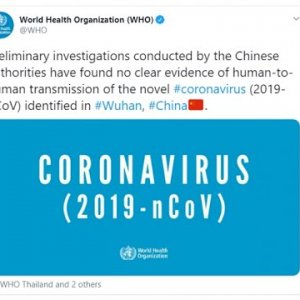No one can balance another brother or sisters bank account but after all of the oil reserves found in West Africa, that AFRICOM, is more then likely seeking to swoop on for certain corporations, maybe it is time for the few nations to unify for the benefit of the people and nationalize their oil reserves
Warning of Famine in West Africa
by Barry Mason
Global Research, June 12, 2010
World Socialist Web Site - 2010-06-11
Email this article to a friend
Print this article
0
diggs
digg
The United Nations World Food Programme (WFP) warns that 10 million people across the Sahel region of West Africa could face famine over the next few months. According to the charity Oxfam, eight million in Niger could be affected and two million in Chad. Some 80 percent of Chad’s population depends on subsistence agriculture.
The threat of famine is growing across the region. Burkina Faso, Mali, Mauritania and even Northern Nigeria are already experiencing food shortages. The strategic grain reserve in Nigeria is 65,000 tonnes short. There are reports of people crossing the Niger border into Nigeria in search of food. This is an area that has experienced communal clashes over resources.
“The Sahel is one of the most destitute regions in the world, and the spectre of hunger is pushing increasing numbers of people from the countryside into the cities, where they are searching for food to feed their families”, said Thomas Yanga of the WFP.
Nomadic herders in Niger have been particularly badly hit. At the end of the year they start to move south to look for grazing for their animals, but because of irregular rainfall there is insufficient pasture. Some have resorted to selling their animals, but are getting low prices because of their poor condition.
Warnings of a possible food emergency have been sounded since the beginning of the year. Brian O’Neill, regional director of the European Commission Humanitarian Aid Organisation, toured the area in January.
He said, “Erratic rains in the 2009/2010 agricultural season have resulted in an enormous deficit in food production…. You are talking about a crisis of enormous proportions…. If we work fast enough, early enough, it will not be a famine. If we don’t move, there is a strong risk it could be happening”.
He estimated that more than US$220 million would be needed to avert a food crisis. A leaked Niger government document confirmed O’Neill’s concerns. It forecast that half the population would experience food shortages in the coming year.
The West African countries facing food shortages are all in the Sahel region running along the southern edge of the Sahara desert. They are subject to erratic rainfall, but experts consider that global warming is exacerbating water shortage. The irregular rainfall in the 2009 rainy season has meant a shortage of pasture and poor harvests.
The current near-term outlook map for West Africa of the United States Agency for International Development’s Famine Early Warning System shows large swathes of Mauritania, Mali, Niger and Chad as being highly food insecure. The medium-term outlook map shows a big area within Niger as extremely food insecure.
An Oxfam report of May 20 states that this year’s harvest in Niger is around three-quarters of last year’s and that in the Diffa region in the east and Tillabery region in the west there was no harvest. The harvest in Chad is down a third on last year.
Mamadou Biteye, an Oxfam regional director, recalled the experience of the famine of 2005. “In 2005, the world ignored warning signs from Niger and lives were lost”. Some four million people were affected by that famine.
A UN Food and Agricultural Organisation special alert notice was issued on May 19. It warned, “The food situation is of grave concern in parts of the Sahel, notably in Niger”.
It pointed out that the region is still suffering from high prices sparked by speculation in food in 2008. It noted that the current drop in cereal and pasture production is taking place “against a backdrop of high food prices”.
http://www.globalresearch.ca/index.php?context=va&aid=19692
Warning of Famine in West Africa
by Barry Mason
Global Research, June 12, 2010
World Socialist Web Site - 2010-06-11
Email this article to a friend
Print this article
0
diggs
digg
The United Nations World Food Programme (WFP) warns that 10 million people across the Sahel region of West Africa could face famine over the next few months. According to the charity Oxfam, eight million in Niger could be affected and two million in Chad. Some 80 percent of Chad’s population depends on subsistence agriculture.
The threat of famine is growing across the region. Burkina Faso, Mali, Mauritania and even Northern Nigeria are already experiencing food shortages. The strategic grain reserve in Nigeria is 65,000 tonnes short. There are reports of people crossing the Niger border into Nigeria in search of food. This is an area that has experienced communal clashes over resources.
“The Sahel is one of the most destitute regions in the world, and the spectre of hunger is pushing increasing numbers of people from the countryside into the cities, where they are searching for food to feed their families”, said Thomas Yanga of the WFP.
Nomadic herders in Niger have been particularly badly hit. At the end of the year they start to move south to look for grazing for their animals, but because of irregular rainfall there is insufficient pasture. Some have resorted to selling their animals, but are getting low prices because of their poor condition.
Warnings of a possible food emergency have been sounded since the beginning of the year. Brian O’Neill, regional director of the European Commission Humanitarian Aid Organisation, toured the area in January.
He said, “Erratic rains in the 2009/2010 agricultural season have resulted in an enormous deficit in food production…. You are talking about a crisis of enormous proportions…. If we work fast enough, early enough, it will not be a famine. If we don’t move, there is a strong risk it could be happening”.
He estimated that more than US$220 million would be needed to avert a food crisis. A leaked Niger government document confirmed O’Neill’s concerns. It forecast that half the population would experience food shortages in the coming year.
The West African countries facing food shortages are all in the Sahel region running along the southern edge of the Sahara desert. They are subject to erratic rainfall, but experts consider that global warming is exacerbating water shortage. The irregular rainfall in the 2009 rainy season has meant a shortage of pasture and poor harvests.
The current near-term outlook map for West Africa of the United States Agency for International Development’s Famine Early Warning System shows large swathes of Mauritania, Mali, Niger and Chad as being highly food insecure. The medium-term outlook map shows a big area within Niger as extremely food insecure.
An Oxfam report of May 20 states that this year’s harvest in Niger is around three-quarters of last year’s and that in the Diffa region in the east and Tillabery region in the west there was no harvest. The harvest in Chad is down a third on last year.
Mamadou Biteye, an Oxfam regional director, recalled the experience of the famine of 2005. “In 2005, the world ignored warning signs from Niger and lives were lost”. Some four million people were affected by that famine.
A UN Food and Agricultural Organisation special alert notice was issued on May 19. It warned, “The food situation is of grave concern in parts of the Sahel, notably in Niger”.
It pointed out that the region is still suffering from high prices sparked by speculation in food in 2008. It noted that the current drop in cereal and pasture production is taking place “against a backdrop of high food prices”.
http://www.globalresearch.ca/index.php?context=va&aid=19692


![Method Man ft. Busta Rhymes - What's Happenin' *Uncensored* [Official video]](/data/xfmg/thumbnail/4/4497-5407cbe795c39aff1418d25fa8d97e90.jpg?1561828047)



 ... please make yourself at home ...
... please make yourself at home ... 